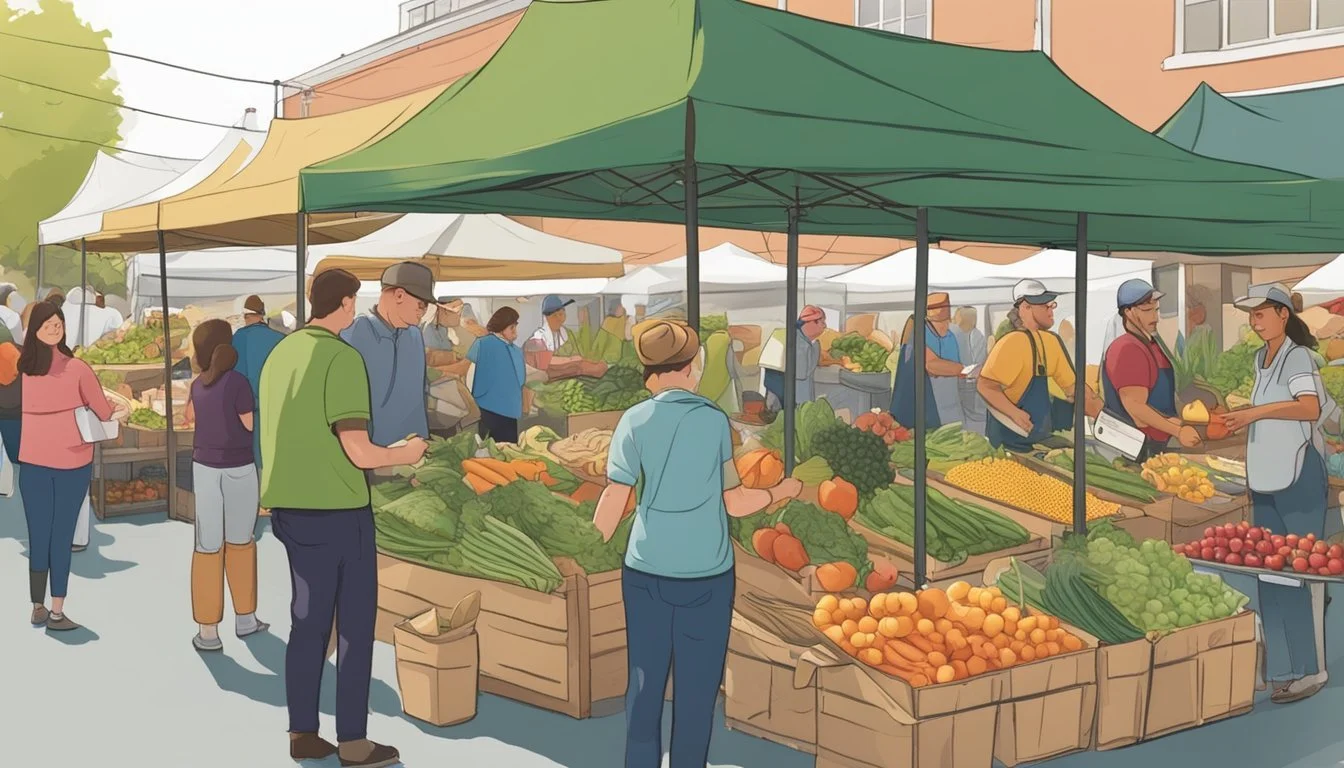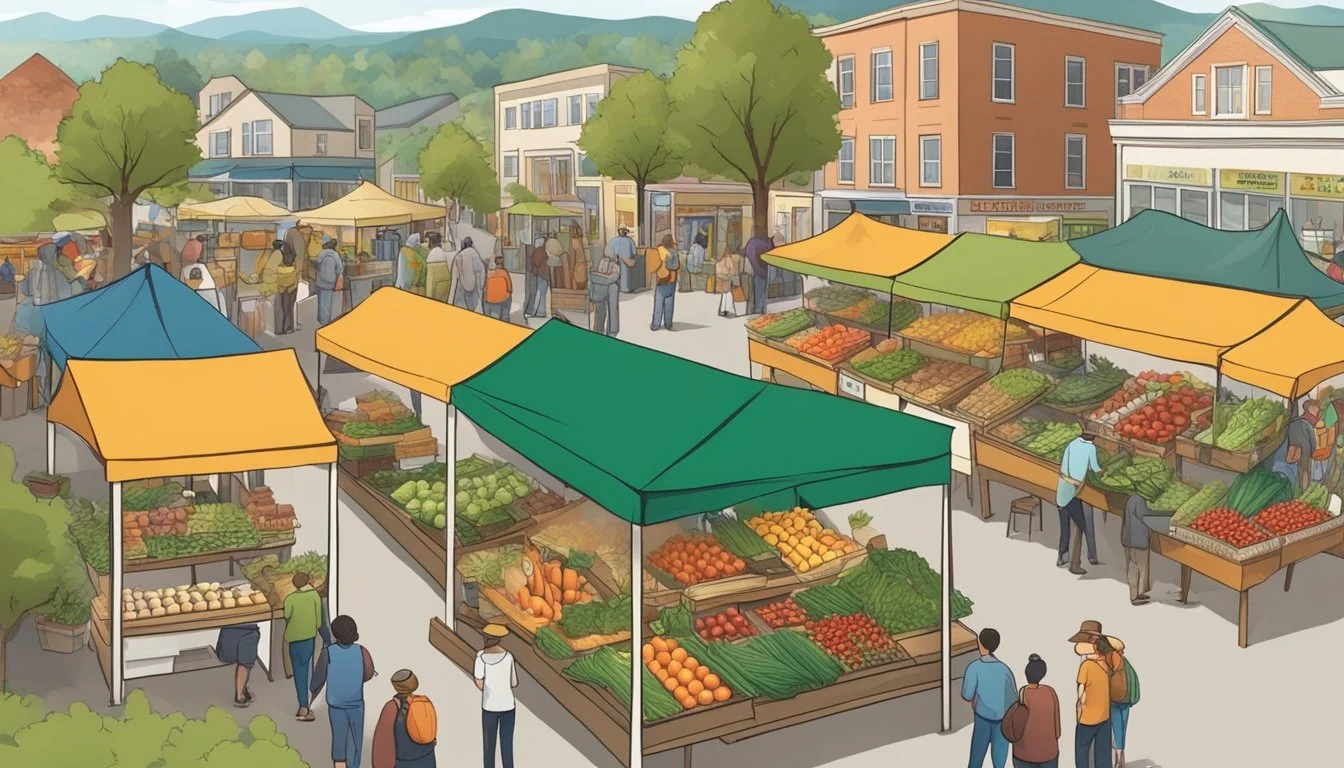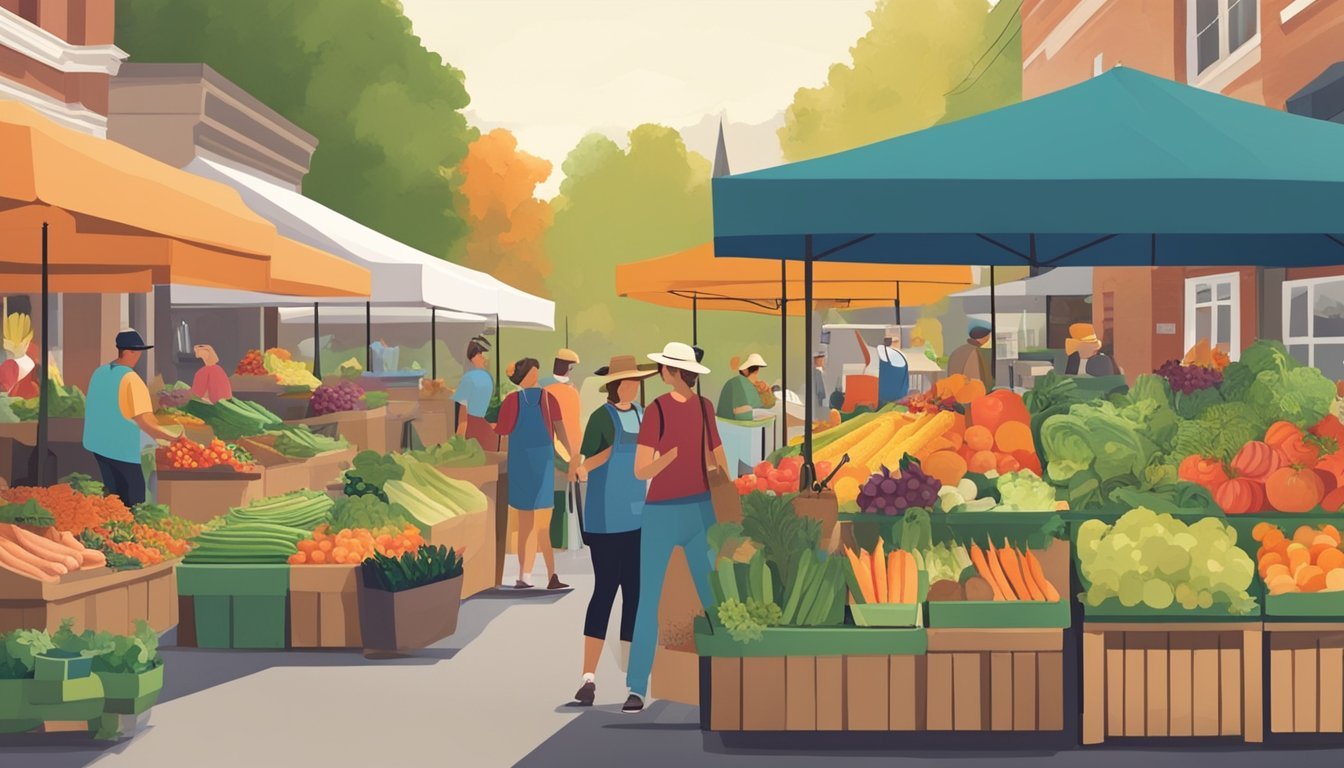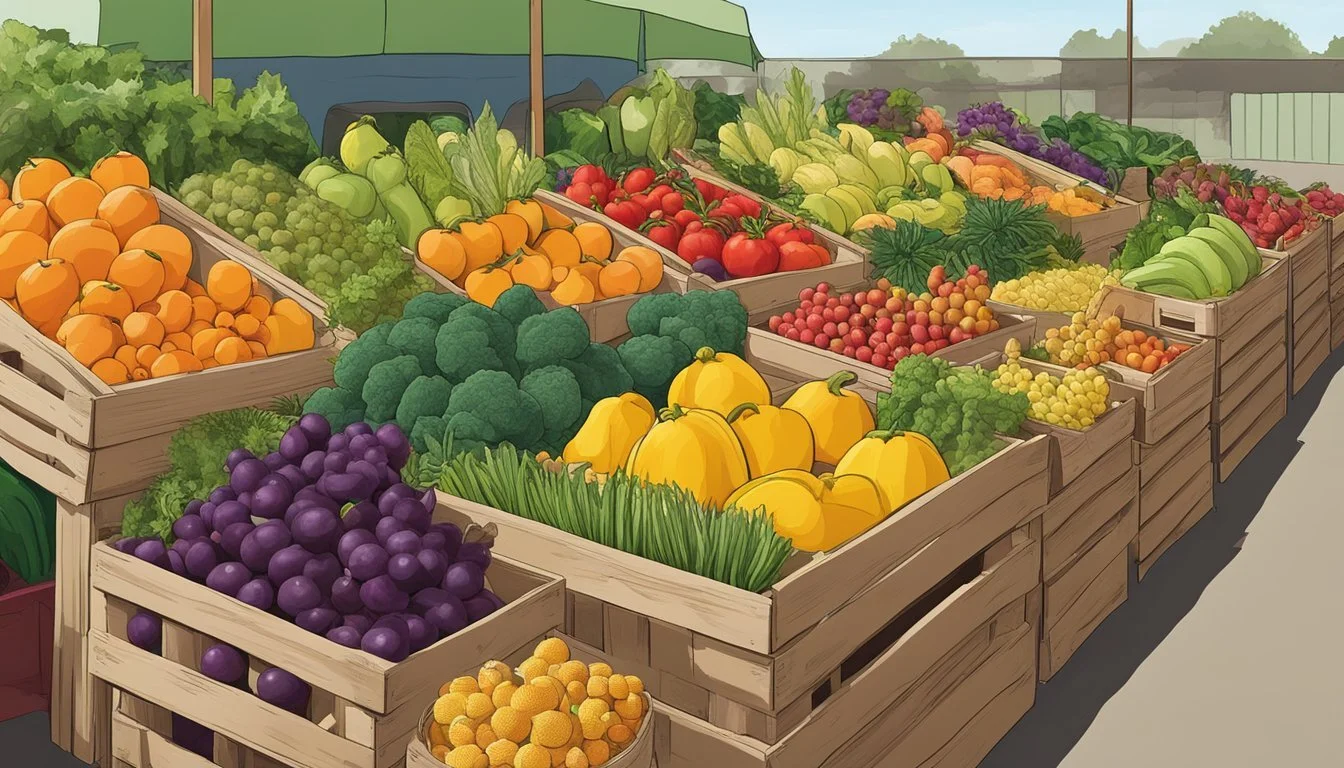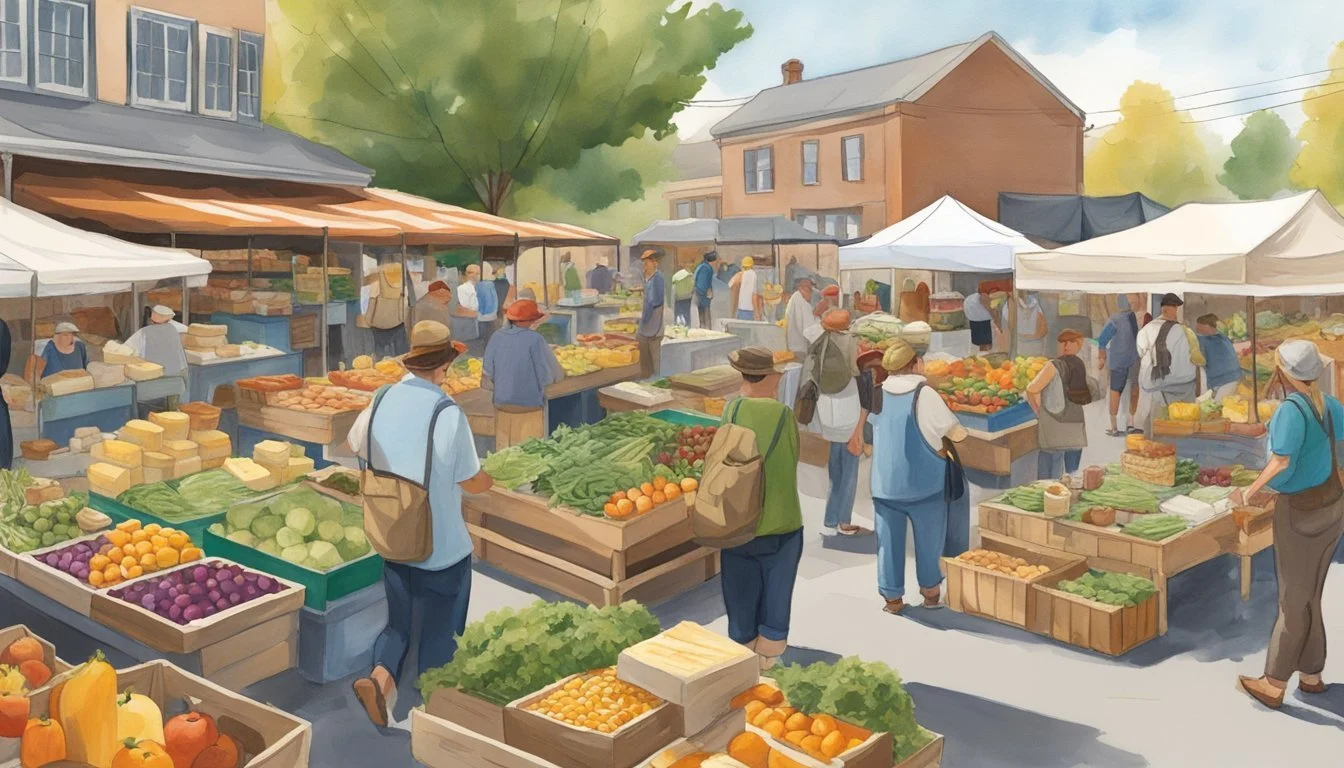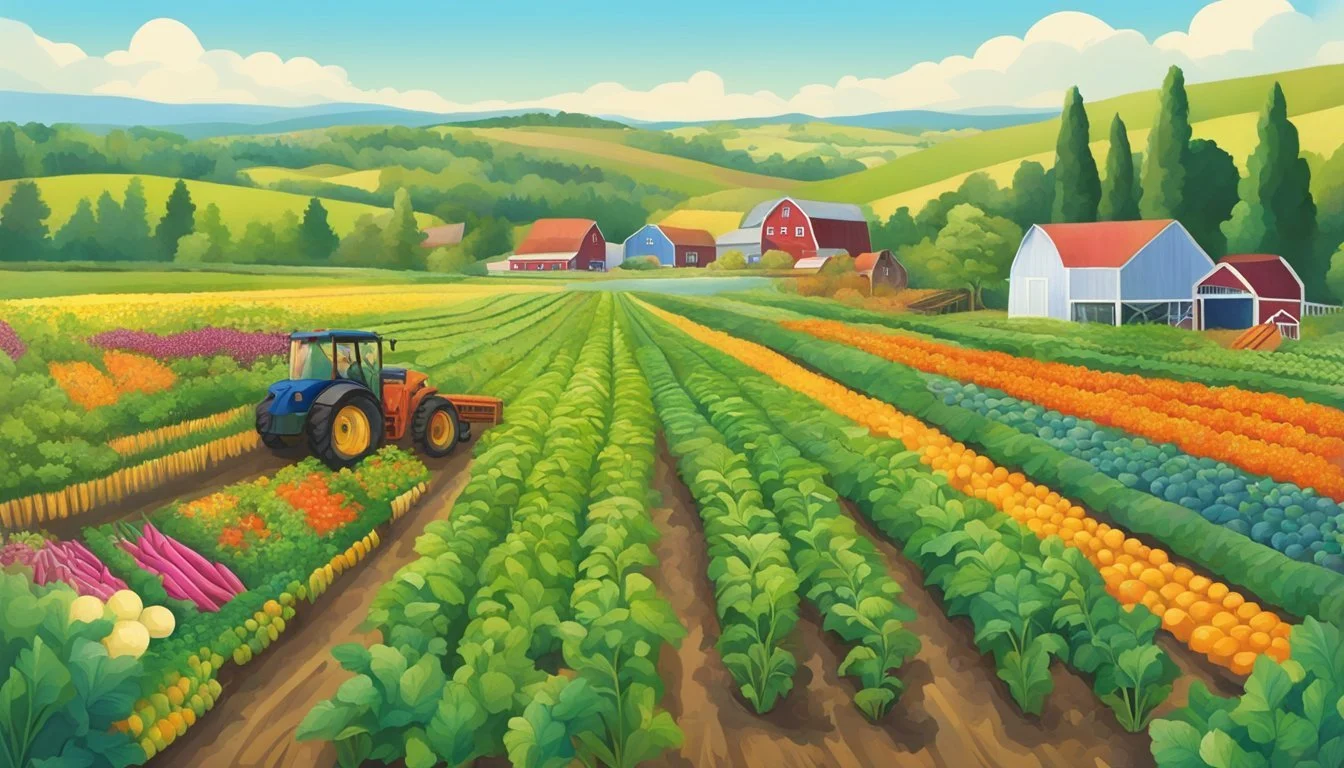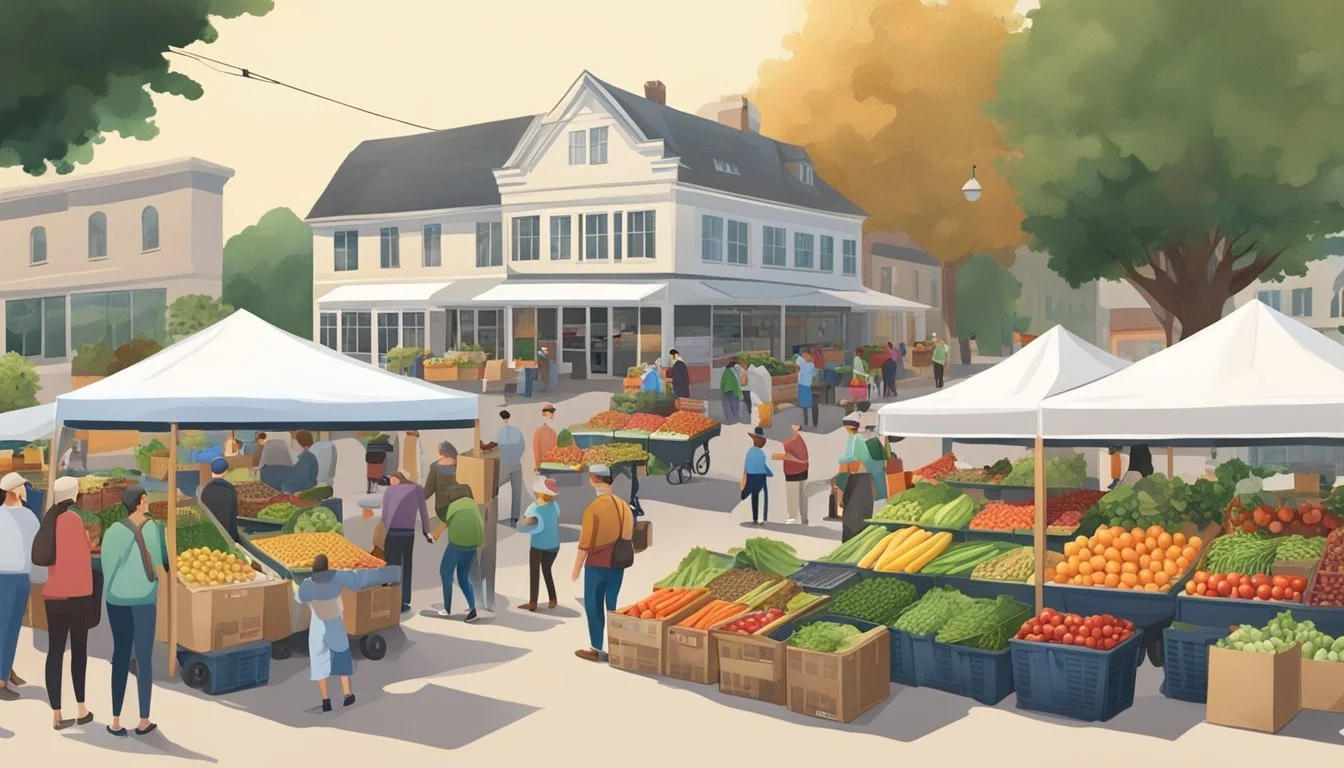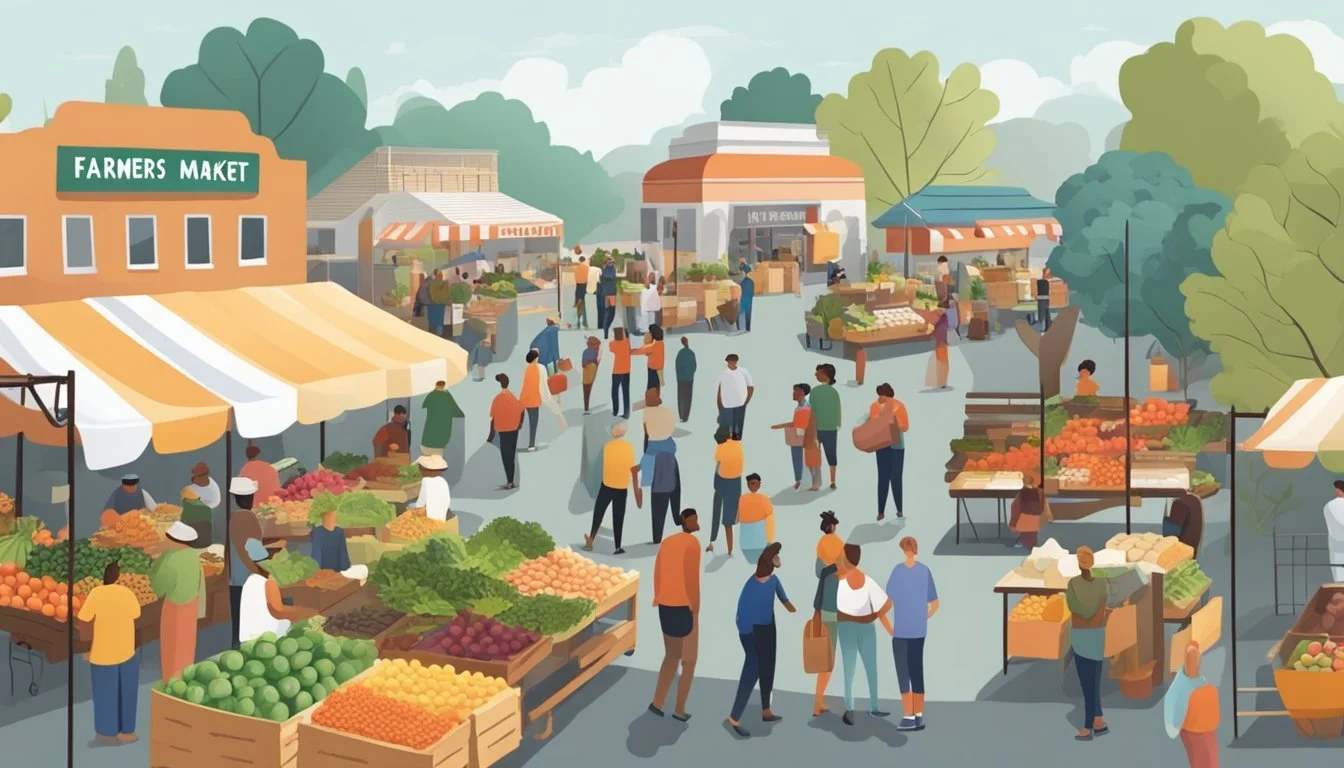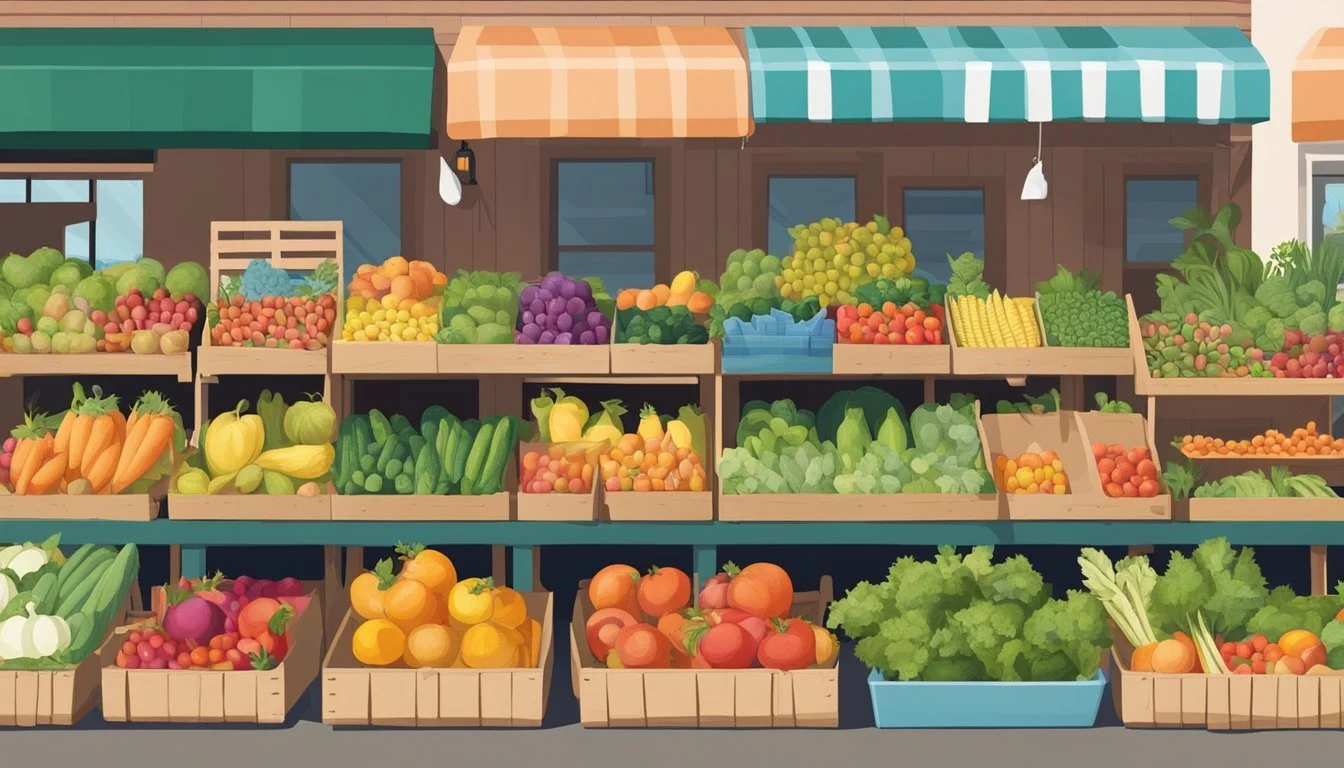Community Supported Agriculture (CSA) in Salem, OR
A Guide to Local Produce Partnerships
Community Supported Agriculture, commonly known as CSA, is an agricultural model that has gained traction in Salem, Oregon, as well as across the nation. This system allows consumers to buy seasonal food directly from local farmers by purchasing "shares" or memberships. These shares often consist of a weekly or bi-weekly box of vegetables, and may also include other farm products like fruits, eggs, and dairy. CSA enables residents of Salem to invest in their local agricultural community, ensuring that they receive fresh and locally-sourced produce throughout the farming season.
In Salem and the surrounding area, various farms offer CSA programs tailored to meet the needs of individual households and businesses. These farms cultivate a sense of community by encouraging member participation and often provide educational resources about sustainable agriculture and food justice. By supporting CSAs, Salem residents play a pivotal role in helping local farms thrive, fostering environmental stewardship and strengthening the local food system.
Understanding Community Supported Agriculture
Community Supported Agriculture (CSA) represents an innovative model for connecting consumers with local farmers, fostering a more sustainable agricultural system in Salem, Oregon, by offering shares to consumers who subscribe to seasonal produce.
CSA Basics
Community Supported Agriculture is built on the premise of consumers buying subscriptions, or "shares," from local farmers. Each share entitles the consumer to a portion of the season's harvest, typically delivered on a weekly basis. This setup provides a direct relationship between farmer and consumer, emphasizing the importance of sustainable practices and community involvement.
Subscription Model: Consumers pay in advance for a season's worth of produce.
Share: Represents the portion of the farm's yield allocated to each consumer.
Benefits for Consumers and Farmers
The CSA model mutually benefits both parties involved; consumers receive fresh and local produce while farmers gain financial security and community support.
For Consumers: Access to fresh, locally-sourced produce and a deeper understanding of sustainable agriculture.
For Farmers: Steady income and a guaranteed market for their harvest.
History of CSA in Salem
The history of CSA in Salem is part of the broader growth of sustainable agriculture practices in the region. Salem's location near fertile land like that on Grand Island contributes to the robust participation in CSA programs. Data from the U.S. Department of Agriculture underscores the national significance, with over 7,000 farms engaged in CSAs and considerable direct-to-consumer sales.
Local Growth: Oregon's Willamette Valley and areas surrounding Salem have seen an uptick in CSAs.
National Trend: CSA models in the U.S. are reflective of a broader move towards sustainable, community-focused farming practices.
The CSA model in Salem, OR, is an exemplar for sustainable, communal agriculture across the United States, highlighting the value of direct farmers-to-consumer relationships.
How to Find the Right CSA in Salem
When considering joining a Community Supported Agriculture (CSA) program in Salem, OR, individuals should evaluate the diversity of available share types, select an appropriate share size and variety, and understand the benefits of supporting local CSAs.
Types of Shares
CSAs typically offer a range of share types to accommodate different preferences and needs. For example, some CSAs provide vegetable-only shares, while others might include fruit, eggs, and even meat products. One should search for CSAs that align with their dietary habits and culinary interests.
Choosing Share Size and Variety
The size of the CSA share is crucial as it should reflect the consumption needs of the individual or family. Shares might range from small, suitable for singles or couples, to larger family-sized portions. It's important to compare options, as some CSAs allow members to customize their shares based on the variety of produce they prefer.
Benefits of Local CSAs
Joining a local CSA offers fresher produce and strengthens community bonds. It also supports the regional economy and sustainable farming practices. Local food directories are valuable resources for finding CSAs near Salem, aiding members in making informed decisions about where to invest their support for local agriculture.
Seasonal and Fresh Produce Offerings
In Salem, Oregon, CSA programs offer a variety of fresh and seasonal produce, ensuring that members receive the highest quality fruits and vegetables throughout the year. These offerings are often organic and pesticide-free, embracing sustainable farming practices.
Typical Seasonal Crops in Salem
Spring: Members can expect to find a range of leafy greens like spinach and lettuce, along with peas, onions, and radishes.
Summer: The warmer months bring a selection of tomatoes, peppers, and berries, accompanied by broccoli, beans, and a variety of summer squash.
Fall: This season is known for apples, pears, and winter squash, along with a second harvest of many summer vegetables.
Winter: Although the offerings are more limited, some CSA farms provide heirloom root vegetables and winter greens.
Organic and Pesticide-Free Options
CSAs in Salem prioritize the health of both their members and the environment. They often employ organic farming methods that bypass the use of synthetic pesticides and fertilizers.
Heirloom and Locally Adapted Varieties: Farms pride themselves on growing heirloom varieties that have been selected for their flavor and ability to thrive in the local climate.
Exploring Share Contents
Each week, CSA shares in Salem bring a diverse mix of vegetables and fruit, reflecting the seasonal availability and farmers' expertise.
Vegetables: staples include lettuce, onions, broccoli, and specialty items like mushrooms.
Fruit: often features local apples, pears, and a variety of berries depending on the season.
Alternative CSA Products
Community Supported Agriculture in Salem, OR extends beyond the typical offerings of fruits and vegetables. Subscribers have access to a diverse array of products, including farm-fresh meats, dairy, and other locally-crafted items that emphasize sustainability and local farming practices.
Beyond Vegetables - Meats, Eggs, and More
In the Salem area, CSAs are not limited to produce. They often include a variety of meats such as beef, pork, and chicken, supporting the local demand for ethically-raised and sustainable farm products. Subscribers have the luxury of receiving fresh, high-quality meats directly from small-scale farmers who prioritize animal welfare and sustainable farming methods.
Additionally, many CSAs offer eggs from chickens raised on pasture, providing a richer flavor profile and nutritional benefits. It's also common to find honey from local apiaries, characterized by its unique taste that reflects the regional flora. These products contribute to a well-rounded diet, bringing the farm's diversity directly to the consumer's table.
Locally Crafted Products
Beyond edibles, CSA members in Salem may indulge in a selection of locally crafted non-food items. Here are a few examples:
Flowers: Bouquets of fresh, sustainably-grown flowers are often available, adding a vibrant touch to one's home while supporting local horticulture.
Herbs: Aromatic herbs, both culinary and medicinal, cater to those interested in organic and healthful living.
Cheese: Small-batch artisanal cheese from nearby dairies showcase the region's dairy expertise and provide an excellent pairing with the CSA's fruit and vegetable bounty.
CSAs in Salem tap into the artisanal skills of local producers, fostering a connection between consumers and the hands that meticulously craft their goods. This approach not only ensures freshness but also bolsters the local economy through direct support of artisanal producers.
Supporting Salem's CSA Farms
Community Supported Agriculture (CSA) in Salem, Oregon, reinforces the local economy and forges strong community ties through shared commitment and support of sustainable farming practices.
Membership Fees and Contributing to Local Economy
Membership fees are a primary source of income for farmers in the Salem region. By subscribing to a CSA farm, customers provide monetary support that is crucial to maintaining the farm's operations. In doing so, they help sustain local farmers financially and ensure that money circulates within the local economy, benefitting the entire Willamette Valley. For instance, the fees permit farmers to procure necessary supplies, hire local labor, and invest back into their agricultural practices.
Shared Risk and Reward
CSA members intimately understand the concept of shared risk with the farmers. When customers pay their membership fee, they are investing in the farmer's crop season, weathering the ups and downs together. This partnership promotes resilience and sustainability for farms, with customers often receiving more produce than expected in bountiful seasons — a tangible reward for their upfront commitment.
Community Building and Networking
A CSA membership goes beyond simply buying produce; it fosters community building and networking among members and farmers. Through events such as farm visits and pick-up days, members engage with one another and form a network linked by the commitment to support sustainable farms. This relationship strengthens regional ties and ensures the continuity of initiatives like the Port Orford Sustainable Seafood model, which champions local, market-style distribution of fresh goods.
By participating in Salem's CSA farms, customers help preserve a vital connection to the land and its caretakers, while enjoying nutritious, locally grown food.
CSA Season and Delivery Options
Community Supported Agriculture (CSA) in Salem, Oregon, offers a robust framework for residents to receive fresh, local produce directly from farms. With planned schedules and varied delivery methods, consumers can access seasonal vegetables and other farm products throughout the harvest months.
Timeline of CSA Season in Salem and the Willamette Valley
The CSA season in Salem, and the greater Willamette Valley typically spans from spring through fall. Most CSA farms kickoff their deliveries in late April or early May and continue through October or November, coinciding with the region's productive growing season. Specific start and end dates can vary between farms, but members can generally expect roughly 20-25 weeks of produce deliveries.
Pick-Up Points and Home Delivery
CSA members in Salem have the option of picking up their shares at designated farmers markets or pick-up points within the city. Often located in accessible areas, these points are managed by either the market manager or farm staff to ensure an organized distribution:
Salem Farmers Market
Partnering local businesses
Specific farm locations
Alternatively, several CSA farms in the Salem and Portland area offer home delivery services for an added level of convenience. Deliveries are made on a scheduled weekly or bi-weekly basis, providing ease for those who may not have the time for market visits.
Farm Visits and U-Pick Options
Beyond delivering produce, CSA farms near Salem often encourage visits from their community of consumers. Farm visits are an excellent way for members to connect with the land and see where their food is grown. During these visits, members can often participate in U-Pick opportunities, where they can harvest specific items such as berries or herbs directly from the farm. Farm visits and U-Pick events are typically scheduled during the peak of the season and provide an educational experience for all ages.
Participating in Salem's CSA Scene
Salem, Oregon, offers a range of Community Supported Agriculture (CSA) programs where individuals, families, and friends can engage in local farming operations, educational events, and workshops. Members of the community have opportunities to volunteer and gain a deeper understanding of agriculture practices.
Getting Involved
To participate in a Salem CSA program, community members can purchase a share from local farms like Your Hometown Harvests. Purchasing a share typically involves a commitment to a season's worth of produce, providing members with a consistent supply of fresh, locally grown fruits and vegetables. The cost and duration of CSA programs vary, for example, Sustaining Space Farm offers a 20-week season at $18 per week, paid upfront or through a payment plan.
Steps to join a CSA in Salem:
Research local CSA options by visiting CSA directories or local food networks.
Compare share sizes, pickup locations, and pricing to find a suitable match.
Sign up directly with the CSA farm and choose your subscription type (weekly, bi-weekly, etc.).
Pay the subscription fee to secure your participation for the season.
Events and Workshops
CSA programs in Salem, such as the ones operated by Your Hometown Harvests and Sustaining Space Farm, often incorporate events and workshops into their offerings. These can range from cooking classes that focus on how to prepare seasonal produce to educational talks about sustainable farming practices. Participants are encouraged to attend these activities to build their knowledge and connect with others in the community.
Example workshops members might attend:
Seasonal cooking and preservation classes.
Gardening and composting workshops.
Farm-to-table dinners and community potlucks.
Volunteering and Education
Volunteering with a local CSA is a hands-on way to promote sustainable agriculture and educate both the individual and the community on the importance of local farming. Many CSAs in Salem, such as Sustaining Space Farm, appreciate volunteer work and often provide learning experiences in various aspects of farming operations. Volunteers can expect to be involved in planting, harvesting, packing shares, and possibly assisting with CSA events.
Educational opportunities through volunteering:
Agricultural Practices: Learn about organic methods, crop rotation, and soil health.
Community Engagement: Understand the value of local food systems and community health.
Skill Building: Gain practical skills in gardening and small-scale farming.
By contributing to the local CSA, participants not only support sustainable agriculture but also forge stronger connections with their food sources and the wider Salem community.
Additional Resources and Information
This section provides a selection of resources for those interested in Community Supported Agriculture in the Salem, OR area, including directories for local food, cooking advice, and answers to common CSA queries.
Useful Websites and Local Food Directories
LocalHarvest is a valuable website for discovering nearby CSAs in Salem and the surrounding regions. It offers a platform for connecting with local farms, such as Your Hometown Harvests, which focuses on growing heirloom and nutrient-dense produce using organic methods. For residents in the Portland region, the Portland Area CSA Directory provides a searchable database catering to specific neighborhoods, along with a variety of farm practices including organic and GMO-free options. Additionally, Travel Oregon lists CSAs across Oregon, ensuring a comprehensive resource for locally sourced foods.
Recommended Local Food Directories:
LocalHarvest: Extensive CSA listings and farm practices.
Portland Area CSA Directory: Searchable by neighborhood and farm type.
Travel Oregon: Broad directory for state-wide CSA options.
Cooking Tips and Recipes
Exploring the world of CSAs also brings the joy of cooking with fresh, seasonal produce. Community Supported Agriculture encourages not only a sustainable food supply chain but also offers a gateway to creative and nutritious cooking. Many CSA programs provide their members with recipes specifically tailored to the ingredients in their weekly or monthly shares, enhancing the culinary experience.
Cooking Resources:
CSA-provided custom recipes.
Online platforms with seasonal recipe suggestions.
Frequently Asked Questions
CSAs often operate differently than traditional food purchasing avenues, which may lead to a number of questions from prospective and current members. Common inquiries generally pertain to subscription models, types of produce available, pickup logistics, and payment schedules. Farmers are typically eager to educate consumers about their operations and practices, reinforcing the community aspect of CSA programs.
Typical CSA FAQs:
Subscription Details: Information on how to subscribe and the different types of shares available.
Produce and Products: Queries about the variety of vegetables and other farm products offered.
Pickup Information: Details on where and when to collect CSA shares.
Payment Options: Guidance on payment plans and schedules for CSA membership.

